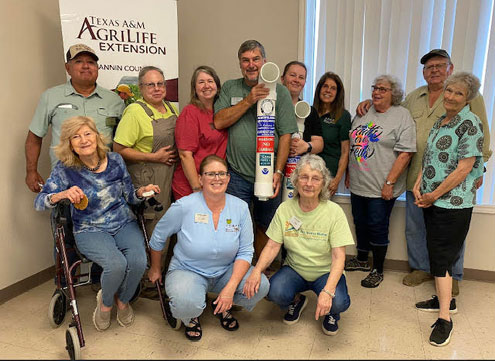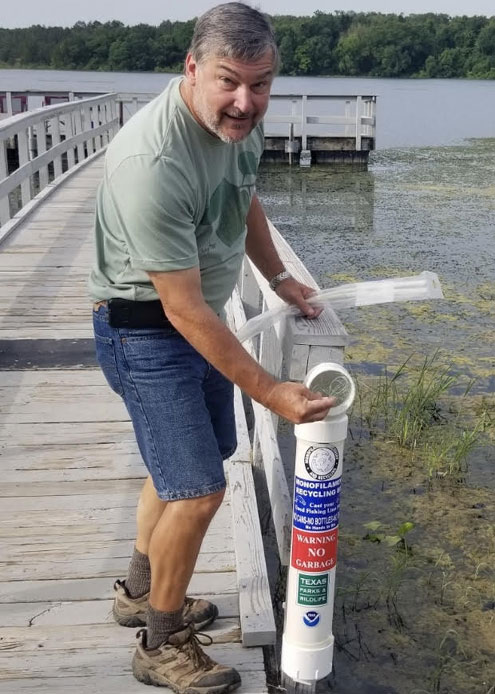Bonham, Texas -- Monofilament is a problem in the environment because it is nonbiodegradable and can last up to 600 years! Because monofilament is thin and clear, animals easily become entangled or ingest it, causing
injury or death. The good news is that monofilament can be recycled if collected, keeping it out of landfills and limiting negative effects on wildlife.

To limit the negative effects of monofilament in our area, The Bois d’ Arc Chapter of the Texas Master Naturalist program TM recently built two monofilament bins. One bin was installed on the fishing pier at Bonham State Park, and the other will be placed on the fishing pier at Lake Bonham. The Bois d’ Arc Chapter will monitor and maintain the containers collecting the monofilament and preparing it to be recycled.

The idea for the monofilament bins was started through the Texas Sea Grant College Program, which began in 2004. The Texas Sea Grant College Program coordinates the Texas Monofilament Recovery and
Recycling Program (MRRP). “MRRP is a statewide volunteer-led effort to reduce monofilament in the
environment by educating the public about the problems caused by monofilament lines left in the environment and encouraging recycling through a network of line recycling bins and drop-off locations.”
To date, 3,385 lbs. of fishing lines have been collected and recycled in Texas since 2004. There are over 250 collection bins across Texas.

We want to remind the public that they can help keep monofilament out of the environment by:
- Recovering as much of your line as possible when it becomes entangled.
- Recover and recycle any line you encounter while on Texas waterways.
- When it is time to throw away your fishing line, cut it into pieces less than six inches long.
- Stow your rods safely while traveling to avoid the wind catching your line, which could cause it to free spool, littering miles of Texas highways.
- When it is safe to do so, collect and properly dispose of or recycle the trash you encounter.
- Volunteer or participate in local lake and river cleanup events.
To learn more about monofilament recycling, please visit https://texasseagrant.org.
If you would like to learn more about how you can become a Texas Master Naturalist with the Bois d’
Arc chapter, visit us on the web at: https://txmn.org/boisdarc/ or join our FaceBook page Bois d’ Arc Master Naturalist. We hold monthly meetings on the third Tuesday of each month at the AgriLife Office
at 2505 N Center St. in Bonham. Meetings begin with a speaker at 6:00 p.m.